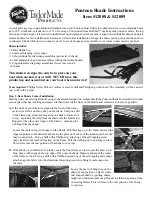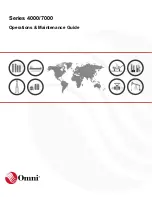
Basic safety notes
02.00 | PZH-SF 350 | Assembly and Operating Manual | en | 389485
13
2.13.2 Protection during commissioning and operation
Falling or violently ejected components
Falling and violently ejected components can cause serious injuries
and even death.
• Take appropriate protective measures to secure the danger
zone.
• Never step into the danger zone during operation.
2.13.3 Protection against dangerous movements
Unexpected movements
Residual energy in the system may cause serious injuries while
working with the product.
• Switch off the energy supply, ensure that no residual energy
remains and secure against inadvertent reactivation.
• Never rely solely on the response of the monitoring function to
avert danger. Until the installed monitors become effective, it
must be assumed that the drive movement is faulty, with its
action being dependent on the control unit and the current
operating condition of the drive. Perform maintenance work,
modifications, and attachments outside the danger zone
defined by the movement range.
• To avoid accidents and/or material damage, human access to
the movement range of the machine must be restricted. Limit/
prevent accidental access for people in this area due through
technical safety measures. The protective cover and protective
fence must be rigid enough to withstand the maximum possible
movement energy. EMERGENCY STOP switches must be easily
and quickly accessible. Before starting up the machine or
automated system, check that the EMERGENCY STOP system is
working. Prevent operation of the machine if this protective
equipment does not function correctly.
2.13.4 Protection against electric shock
Possible electrostatic energy
Components or assembly groups may become electrostatically
charged. When the electrostatic charge is touched, the discharge
may trigger a shock reaction leading to injuries.
• The operator must ensure that all components and assembly
groups are included in the local potential equalisation in
accordance with the applicable regulations.
• While paying attention to the actual conditions of the working
environment, the potential equalisation must be implemented
by a specialist electrician according to the applicable
regulations.
• The effectiveness of the potential equalisation must be verified
by executing regular safety measurements.














































